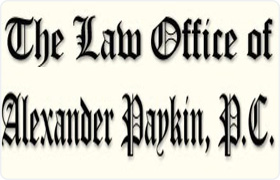Garden City Real Estate Other Lawyer, New York, page 5
Sponsored Law Firm
-
 x
x

Click For More Info:
-
The Law Office of Alexander Paykin, P.C.
350 5Th Ave Fl 59 New York, NY 10118» view mapReal Estate Reliable. Dependable. Accessible.
Whether you are buying, selling, renting, or refinancing your house, our experienced legal team will strongly advocate for you at each and every step of the process.
800-747-9261
Includes: Commercial Leasing, Commercial Real Estate, Condominiums, Conveyancing, Housing & Urban Development, Premises Liability, Residential Real Estate, Title Insurance
Bruce H. Willner
Commercial Real Estate, Estate Planning, Estate, Divorce & Family Law
Status: In Good Standing Licensed: 80 Years
Burton Saul Weston
Commercial Real Estate, Business Organization, Business, Bankruptcy & Debt
Status: In Good Standing Licensed: 48 Years
Carin M. Grassini
Reinsurance, Insurance, Premises Liability, Personal Injury
Status: In Good Standing Licensed: 23 Years
Cesar Zuniga
Estate Planning, Personal Injury, Bankruptcy & Debt, Commercial Real Estate, Mass Torts
Status: In Good Standing Licensed: 21 Years
Clifford A. Bartlett
Real Estate Other, Motor Vehicle, Lawsuit & Dispute, Immigration
Status: Inactive
Craig G. Biscone
Commercial Real Estate, Real Estate, Federal Trial Practice, Business
Status: In Good Standing Licensed: 38 Years
 Alexander Paykin New York, NY
Alexander Paykin New York, NY AboutThe Law Office of Alexander Paykin, P.C.
AboutThe Law Office of Alexander Paykin, P.C. Practice AreasSpecializations
Practice AreasSpecializations
